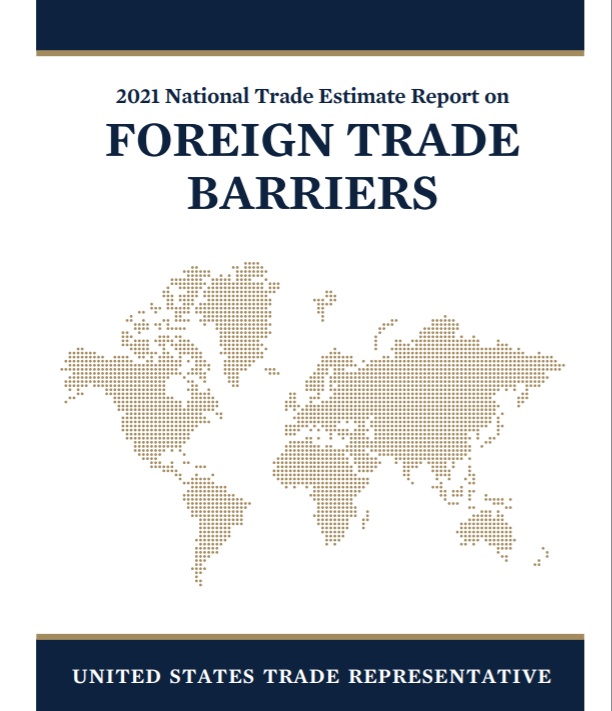U.S. Trade Representative Identifies International Video Streaming Barriers
Policies include fees, licenses, and local content minimums
The smarter way to stay on top of the streaming and OTT industry. Sign up below.
You are now subscribed
Your newsletter sign-up was successful
The U.S. Trade Representative said the administration is monitoring a number of current and potential foreign government policies that affect the distribution of streamed video content.

That is according to the just-released 2021 report on Foreign Trade Barriers, which is billed as identifying "a range of important challenges and priorities to guide the Biden Administration’s effort to craft trade policy that reflects America’s values and builds back better.”
Also Read: Disney Plus Set to Roll Out Price Increase
The report, issued by the new U.S. Trade Representative, Katherine Tai, is an inventory of "significant foreign barriers to U.S. exports of goods and services, investment, and electronic commerce," including the commerce generated by streaming services.
Among the key streaming barriers highlighted:
Australia: In September of 2020 the Australian government announced that it will require streaming video services to provide a report to the government on their Australian content while it investigates whether to require some minimum Australian content obligations for video-on-demand services above a certain size. Then in November, the government issued a proposal to set the "expectation" that streaming services doing business in the country invest a percentage of their Australian revenue in Australian content, "in the form of commissions, co‐productions, and acquisitions," and if they don't get the hint, as it were, the government would be empowered to regulate to make it so.
The Computer & Communications Industry Association (CCIA), whose members include Google and Verizon Media, told USTR in comments last October that it was concerned with the legislation because it applies to "a broad range of technology and Internet services, including U.S.-based social media platforms, user-generated content and live streaming services, and hosting services."
The smarter way to stay on top of the streaming and OTT industry. Sign up below.
Canada: The U.S. neighbor to the north is also looking into content minimums for streaming services. In September 2020, the Canadian government "signaled its intent to move forward with provisions requiring 'web giants' to contribute to the creation, production, and distribution of Canadian content.
"The United States will closely monitor whether any new obligations on tech companies or foreign streaming providers are compliant with Canada’s international trade obligations," the report said.
Portugal: The Portuguese government is instituting a 1% annual fee on income from on-demand or streaming video platforms operating in the country. If it is not possible to determine the relevant income of a streaming platform, the fee will be $1.1 million dollars U.S.
Spain: Spanish VOD services must already reserve 30% of their content for European works, (half of which must be in one of the official languages of Spain) and contribute 5% of their earnings to funding of that content. Now, the government is considering expanding the tax to streaming services not residing in country.
Taiwan: The good news is that Taiwan has amended its Copyright Act to combat illicit streaming devices. The bad news, USTR said more comprehensive copyright legislation has been stalled and right holders report that online piracy remains rampant.
Turkey: Turkey's Radio and Television Supreme Council (RTUK) has adopted a regulation requiring streaming service providers to establish a commercial presence in Turkey and get a broadcasting license. USTR calls those requirements burdensome for streaming services and potentially limiting the ability of foreign firms to operate there.
Also Read: Pandemic-Powered Streaming Boost Could Be New Normal
“CCIA appreciates the attention to digital trade barriers in the 2021 Report, including those that represent protectionist agendas, as well as USTR’s commitment to engaging foreign governments on digital policies that threaten U.S. exporters," said CCIA president Matt Schruers following the report's release.
Contributing editor John Eggerton has been an editor and/or writer on media regulation, legislation and policy for over four decades, including covering the FCC, FTC, Congress, the major media trade associations, and the federal courts. In addition to Multichannel News and Broadcasting + Cable, his work has appeared in Radio World, TV Technology, TV Fax, This Week in Consumer Electronics, Variety and the Encyclopedia Britannica.

